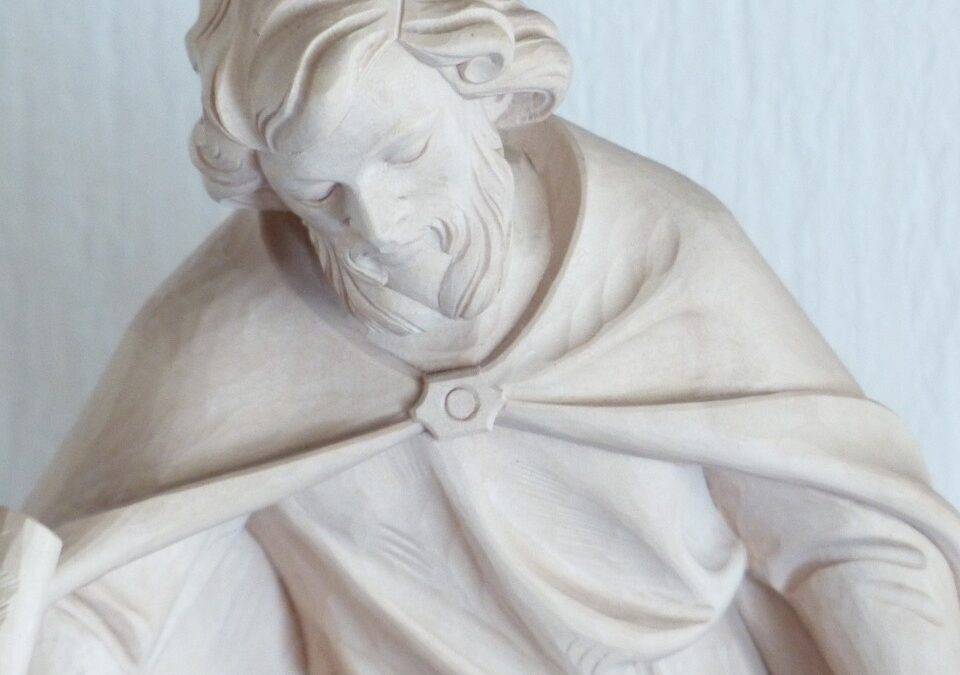
Oct 6, 2025 | POSITIVE IMPULSES
In every season of life, especially in times of confusion, fatigue, or solitude, there are helping hands reaching out to us, sometimes visible, sometimes hidden. Recognizing them is not only a matter of gratitude, but also a way of rekindling hope. These hands may come in the form of a kind word, a shared silence, a stranger’s unexpected generosity, or a friend’s quiet presence. When we learn to pause and see these gestures not as coincidences but as signs of care, divine or human, we rediscover that we are never truly alone. Today, let us train our hearts to notice and receive these helping hands with humility and joy, and perhaps even become one for someone else.
Don Giorgio

Oct 4, 2025 | POSITIVE IMPULSES
There is a deep and transformative power in being happy with what is necessary. In a world constantly urging us to acquire more, achieve more, and be more, choosing to embrace only what is essential is a quiet act of courage, and a source of profound inner freedom. Being content with what is necessary teaches us to appreciate life in its truest form and not for its glittering distractions, but for its lasting substance. Gratitude grows when we stop chasing what is excessive and start recognizing the beauty of what sustains us. In this posture of sufficiency, peace takes root, and joy becomes more accessible. True contentment is not born from abundance, but from alignment: when what we have matches what truly matters. And in that space, we discover a freedom that no excess could ever provide. We stop measuring our lives by accumulation and begin to see through the lens of meaning: the meal shared in simplicity, the word spoken with sincerity, the shelter that protects, the moment of silence that soothes. This kind of happiness is not easily shaken by circumstances, because it does not depend on having everything, but on recognizing the value of what truly matters.
Don Giorgio

Sep 24, 2025 | POSITIVE IMPULSES
Offenses are like unexpected potholes on the road of life. If you hit them without preparation, the shock can throw you off balance, leave you bruised, or even damage your spirit. But when you cultivate inner shock absorbers which are qualities like patience, forgiveness, self-awareness, humility and a good sense of humour, the impact changes. Instead of feeling shattered by harsh words, unjust treatment, or careless actions, you learn to bend without breaking, to absorb the strike and let it pass through you rather than remain within you. These shock absorbers don’t make the road smoother; they make you steadier, more resilient, more capable of keeping your direction despite the bumps. And the more you strengthen them, the freer you become, because no offense, no matter how sharp or deliberate, can rob you of your peace unless you give it permission. In this way, every offense becomes less a wound and more a test that reveals the quiet strength you already carry.
Don Giorgio

Mar 18, 2025 | POSITIVE IMPULSES
Thoughts inspired by St. Joseph…To be silent and eloquent at the same time is to live in the fullness of both presence and expression. Silence is not merely the absence of speech; it is the quiet receptivity that allows one to grasp the whole picture, to perceive reality in its depth without distortion. It is the wisdom of listening, of waiting, of allowing truth to unfold beyond the limitations of words. Yet true eloquence is not opposed to this silence—it is born from it. It is the ability to express what has been deeply understood, to give voice to what one has interiorly embraced. Eloquence is the art of being fully present, of becoming part of the whole picture rather than standing apart from it. In this way, silence and eloquence are not opposites, but two dimensions of a single reality: the art of truly being.
Don Giorgio

Dec 5, 2024 | POSITIVE IMPULSES
Today is the Feast of St. Nicholas, bishop of Myra, in Lycia (now part of Turkey). Still in many countries, this feast brings gifts to the children. St. Nicholas, known for his secret acts of kindness and his care for the vulnerable, inspires us to think about the deeper meaning of giving—not just material gifts but gifts of ourselves. When you think more about sharing and less about receiving you start becoming a gift. By focusing on sharing rather than receiving, we shift our perspective to one of abundance and gratitude. Each act of kindness, no matter how small, has the potential to ripple outward and touch lives in ways we may not even realize. To become a gift is to embody the spirit of giving in every interaction and relationship. It’s about showing up with love, understanding, and a willingness to contribute to others’ well-being. This could mean lending a listening ear, offering a helping hand, or simply being present in someone’s moment of need. These small acts, when rooted in genuine care, often mean more than any material gift. This mindset aligns with the idea that giving transforms both the giver and the recipient. When we focus on what we can give rather than what we can receive, we nurture connections and create a sense of shared humanity. It’s a cycle of kindness that builds relationships and strengthens bonds. Give, and give without measure, you become more what you are!
Don Giorgio

Nov 23, 2024 | POSITIVE IMPULSES
The kingship of Jesus gives us a totally different concept of power. Power to be powerless to serve. In human terms, power often signifies dominance, control, and the ability to impose one’s will. But Jesus reveals a power that is paradoxical: the power to become powerless in order to serve others. This is not a relinquishment of strength but a deliberate act of love, humility, and self-sacrifice. In Jesus’ model of kingship, power is no longer about authority over others but about the capacity to lift others up. It is the strength to kneel and wash feet, the courage to embrace the marginalized, and the willingness to suffer for the sake of love and justice. This servant kingship invites us into a new understanding of greatness—not as achieving status or accumulating influence but as laying down one’s life for others. Jesus’ example empowers us to reimagine our own relationships with power. It challenges us to view influence not as a privilege to exploit but as an opportunity to serve. This concept transforms leadership into an act of stewardship, where power is directed outward to bless, heal, and uplift. In embracing this model, we find a deeper sense of purpose and fulfillment, discovering that true power is love expressed through service. Power is the power to serve.
Don Giorgio






